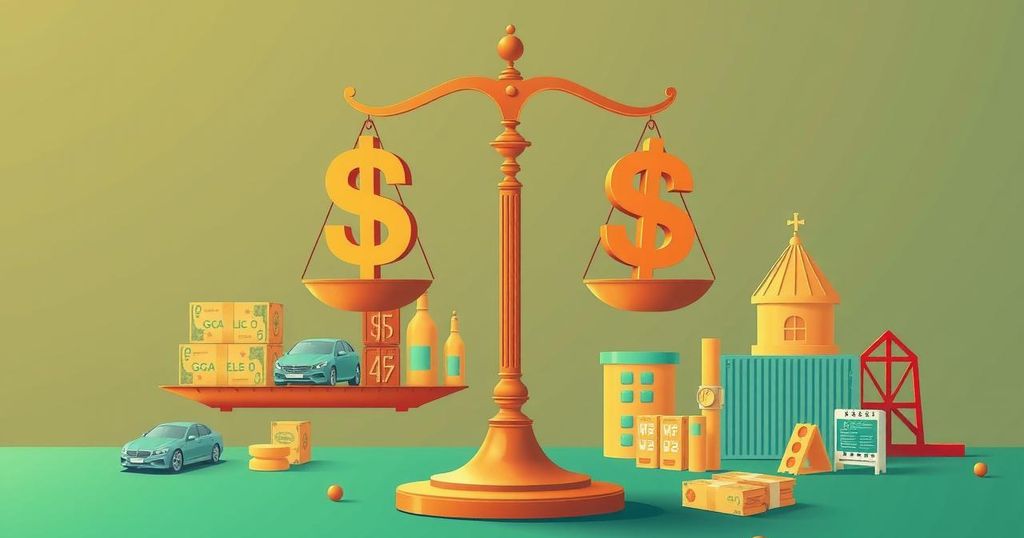Trump to Announce New Tariffs on April 2: What to Expect
On April 2, President Trump is set to announce a fresh wave of tariffs that he calls ‘Liberation Day’, aiming to redefine American trade. His new policy is shrouded in uncertainty but could add significant pressure to household budgets and impact the economy broadly. Possible increases in the cost of living and backlash from various sectors indicate that this announcement could very well be a matter of great concern for many.
Trump’s Tariff Announcement Sparks Concern Over Costs
In an unprecedented move, President Donald Trump has dubbed April 2 ‘Liberation Day’, when he plans to announce tariffs intended to reduce foreign competition and supposedly bolster the American economy. The details are still emerging, but early indications suggest these new import taxes will impact consumer prices and overall family budgets negatively. Critics warn that the average American family might absorb these costs through higher prices and lower wages, potentially triggering a backlash against these policies, while Trump invites business leaders to the White House to discuss their investment strategies in response to these planned measures.
Details of Trump’s Proposed Tariffs
So, what exactly does Trump intend to enforce? From what’s currently known, we can expect a series of import taxes, which may include reciprocal tariffs that align with those imposed by countries like the EU, South Korea, and India. Trump has not shied away from maintaining that such measures are necessary because the U.S. imports far more than it exports, claiming that this imbalance costs jobs and wealth. In his own words, he sees these tariffs as a way to address unfair global trade practices that have long plagued American workers and industries, asserting this marks a significant turning point for the nation.
Economic Ramifications of Tariffs
The potential impact on the U.S. economy isn’t looking pretty according to economists. They predict that the tariffs could ultimately drive up consumer prices across a range of sectors, including autos, groceries, and housing—effectively passing along the cost of these taxes to everyday Americans. In fact, some estimates suggest that tariffs on vehicles could add as much as $4,711 onto the price of a car. Moreover, the general mood among economic experts hints at sluggish growth, with Goldman Sachs downgrading growth projections dramatically since last year, highlighting a growing sense of caution.
Reactions from Foreign Leaders
Responses from the international community have been swift and critical. Leaders from Canada, France, and Mexico have expressed concerns that Trump’s tariffs could hinder global economic stability, leading to a potential trade war. Canadian Prime Minister Mark Carney openly criticised the move, suggesting it could unravel the longstanding partnership between the two nations. French President Emmanuel Macron echoed these sentiments, stating that such tariffs could result in job losses and inflation—not just in the U.S. but around the globe, as supply chains are disrupted.
The Significance of ‘Liberation Day’
Interestingly, the term ‘Liberation Day’ is not just a catchy slogan for the launch of tariffs; it’s a recurring theme in Trump’s rhetoric over the years. He has previously labeled various dates as ‘liberation days’, which seem to reflect his view that tariffs equate to an ‘economic liberation’ for Americans. Experts, however, are sceptical about this narrative, pointing out that consumer confidence and the stock market have been sliding, indicating a broad unease about the implications of these trade policies. Some fear that the public is already recognising the potential pitfalls of this approach before tariffs even take effect.
What are the main objectives of Trump’s tariffs?
Trump’s tariffs are intended to impose higher costs on foreign goods to presumably protect American jobs and industries, especially in sectors like automotive and pharmaceuticals.
What impact could the tariffs have on the U.S. economy?
Many economists predict that the tariffs will lead to higher consumer prices, reduced corporate profits, and potentially sluggish economic growth.
How are other countries responding to Trump’s tariffs?
Countries such as Canada and France have announced plans to respond with their own tariffs, leading to fears of an escalating trade conflict.
Will consumers face higher prices as a result of these tariffs?
At present, it seems the tariffs will result in increased costs for American consumers across various goods and services, leading to significant concern among families.
What does Trump’s ‘Liberation Day’ signify?
The term appears to signify Trump’s deep focus on tariffs as a method of economic empowerment, though many experts believe it could yield negative results.




